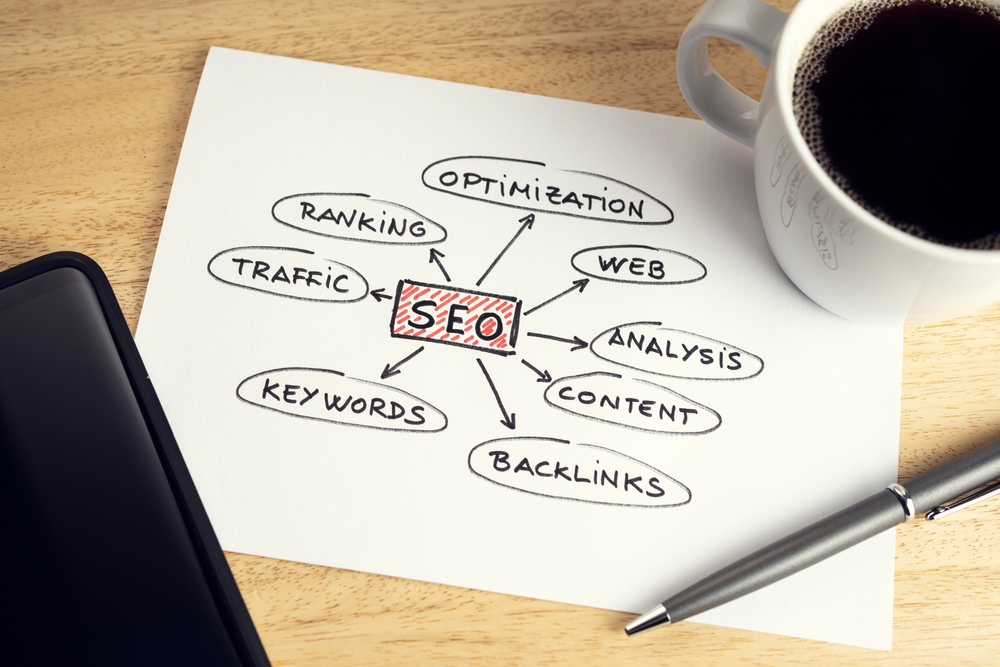
Mastering SEO and Link Building: The Ultimate Guide to Boosting Your Online Visibility

In today's digital era, having a strong online presence is essential for any business or individual who wants to succeed. With over 3.5 billion searches per day on Google alone, it's crucial to ensure that your website stands out from the crowd. One way to achieve this is by mastering SEO (Search Engine Optimization) and link building. In this ultimate guide, we will walk you through the fundamentals of SEO (or SEM) and provide actionable tips on how to boost your online visibility.
Understanding SEM/SEO
SEO/SEM is the practice of optimizing your website to rank higher on search engine result pages (SERPs). When someone searches for a particular keyword or phrase related to your business, you want your website to appear at the top of the results. This is because higher rankings generally lead to increased organic traffic, which can ultimately result in more conversions and revenue.
The first step in mastering SEO is to conduct thorough keyword research. Identify the relevant keywords that your target audience is using to search for products or services similar to yours. Tools like Google Keyword Planner or SEMrush can assist you in finding valuable keywords with high search volumes and low competition.
Once you have a list of keywords, strategically place them in your website's content, headings, meta tags, and URLs. However, it's crucial to avoid keyword stuffing, as search engines penalize websites that engage in this practice. Instead, focus on creating high-quality, informative, and engaging content that naturally incorporates your target keywords.
Optimizing On-Page Elements
In addition to keyword placement, there are several other on-page elements that play a significant role in SEO (search engine optimization) . These elements include:
Title Tags: Title tags are HTML elements that define the title of a webpage. Each page on your website should have a unique and descriptive title tag that includes your target keyword.
Meta Descriptions: Meta descriptions provide a concise summary of what a webpage is about. These should be engaging, informative, and include relevant keywords to entice users to click on your website in the search results.
Headers: Use HTML headers (H1, H2, H3, etc.) to structure your content. Headers help search engines understand the hierarchy and importance of the information on a webpage. Including target keywords in headers can further boost your SEO efforts.
Image Optimization: Images can enhance the visual appeal and engagement of your website. However, search engines cannot interpret images themselves; they rely on alt tags to understand what an image represents. Optimize your images by including descriptive alt tags with relevant keywords.
Building High-Quality Backlinks
Link building is another crucial aspect of mastering SEO. Backlinks are links from external websites that direct users to your site. Search engines view backlinks as an indicator of a website's authority and credibility. The more high-quality backlinks you have, the higher your ranking on SERPs.
While obtaining backlinks from reputable websites is desirable, it's important to remember that quality matters more than quantity. A few links from authoritative websites within your industry will have a more significant impact on your SEO than numerous links from low-quality sites.
Here are some effective techniques for building high-quality backlinks:
1. Guest Posting: Write and contribute valuable, informative content to authoritative websites within your industry. Include a link back to your website within the author bio or content. This not only helps you gain exposure to a wider audience but also builds credibility and brand authority.
2. Resource Link Building: Create and share high-quality, informative resources such as industry reports, whitepapers, or infographics. Reach out to relevant websites and ask them to link to your resource if they find it valuable.
3. Influencer Outreach: Collaborate with influencers or industry experts in your niche. They can help promote your content to their followers, increasing the chances of acquiring high-quality backlinks.
4. Broken Link Building: Identify broken links on authoritative websites within your industry and reach out to the webmasters, offering your content as a replacement. This technique benefits both parties by eliminating broken links and providing valuable resources to website visitors.
5. Social Media Promotion: Share your content on social media platforms and engage with your audience. Social signals can indirectly impact SEO by increasing visibility and attracting organic backlinks.
Frequently Asked Questions
Q1. How long does it take to see results from SEO efforts?A1. SEO is a long-term strategy, and it typically takes several months to see significant results. However, the time frame can vary depending on factors such as competition, keyword difficulty, and the quality of your optimization efforts.
Q2. Should I focus on on-page SEO or off-page SEO?
A2. Both on-page and off-page SEO are essential for a comprehensive SEO strategy. On-page SEO focuses on optimizing your website's content and technical elements, while off-page SEO builds authority through backlinks and social signals. Striking a balance between the two is crucial for optimal results.
Q3. How often should I update my website's content for SEO purposes?
A3. Regularly updating your website's content is beneficial for SEO. Aim for fresh, relevant, and engaging content to keep users and search engines engaged. This could mean adding new blog posts, updating product pages, or refreshing existing content periodically.
Q4. Are paid advertisements necessary to improve SEO?
A4. While paid advertisements can increase your website's visibility and drive immediate traffic, they are not directly linked to SEO. SEO focuses on organic search results, while paid ads come under search engine marketing (SEM). However, an integrated approach combining SEO and SEM can yield excellent results.
Q5. Is SEO a one-time effort, or does it require ongoing maintenance?
A5. SEO is an ongoing process that requires continuous monitoring, analysis, and optimization. Search engine algorithms evolve, and your competitors continuously work on improving their SEO. Regular maintenance and updates are essential to stay ahead and maintain or boost your online visibility.
Conclusion
Mastering SEO and link building is crucial for boosting your online visibility and driving organic traffic to your website. By understanding the fundamentals of SEO, optimizing on-page elements, and building high-quality backlinks, you can improve your website's rankings on search engine result pages. Remember, SEO is a continuous process, so stay informed about the latest trends and adapt your strategies accordingly to stay ahead of the competition.
Other useful resources
- https://en.wikipedia.org/wiki/Seo
- https://www.seoguru24.com/listing-category/web-directory/